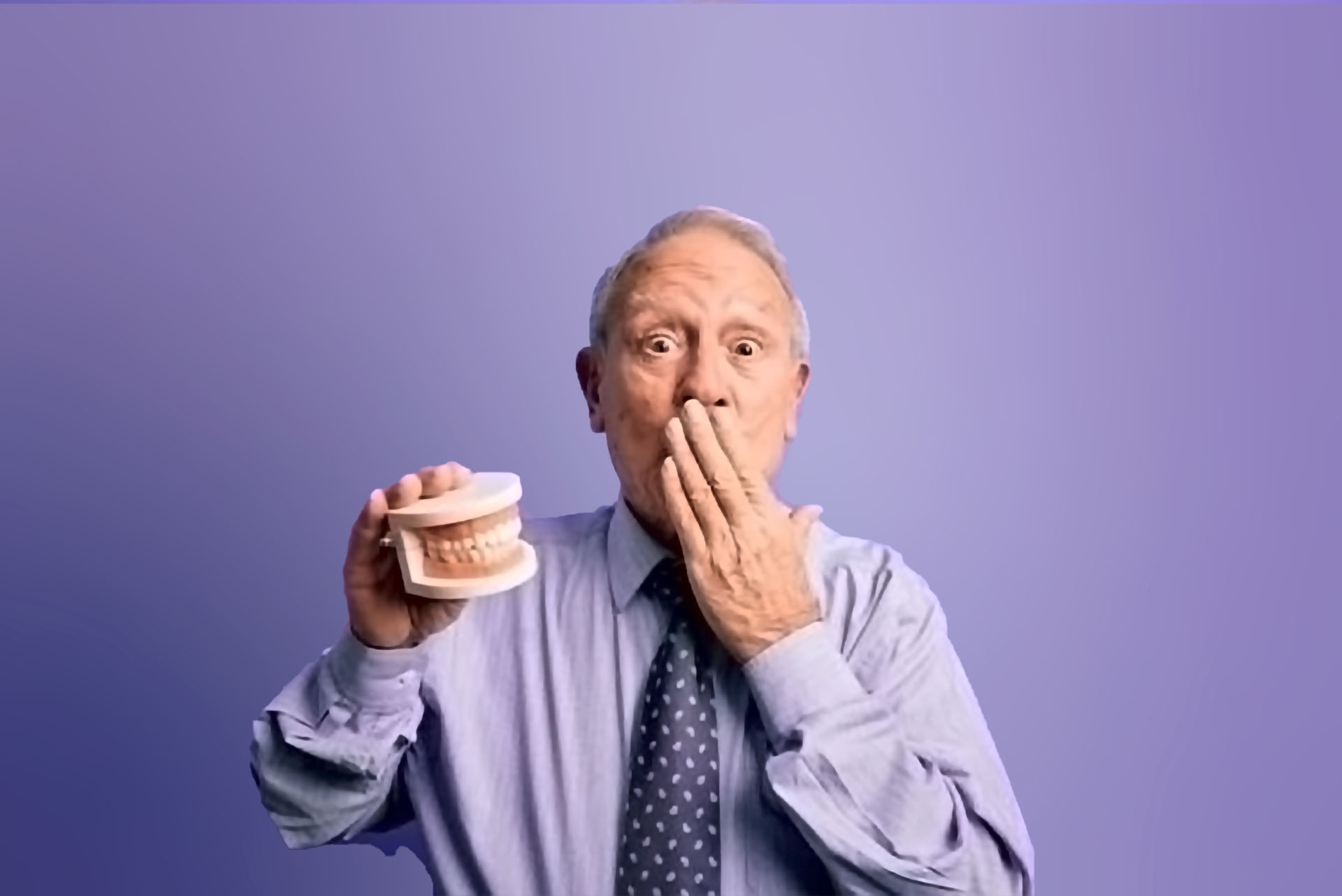Dental Care vs Dentures, what’s best?
Dental care is an essential part of maintaining overall health, especially for the elderly. As we age, the well-being of our teeth changes and we can often incur problems with basic oral hygiene. A large proportion of seniors are able to keep their natural teeth until later in life due to consistent oral health care, however many are not as lucky. Others use dentures often out of need or preference. Read on to understand the difference between dental care and dentures, and fathom the most suitable option for you or your loved ones.
Common Dental Problems In Seniors
With aging, seemingly common dental issues may become more prevalent and persisting. These conditions could include the following:
● Dry mouth: Some methods of therapy and/or medications can cause a dry mouth as they may lower the saliva production
● Root decay & cavities: With age the gum tissue starts to recede exposing the root surface of the teeth. As a result, the root of the teeth are no longer covered with enamel and they are more susceptible to decay
● Increased sensitivity: Gum recession exposes areas of the teeth that are unprotected by enamel which increases sensitivity to cold, hot, sour, or sweet things. It is worth noting however that sensitivity can often signal other dental conditions such as cavities or cracked teeth
● Gum disease: Gum disease is more prevalent among people aged 40 and over. It occurs as a result of poor oral hygiene, conditions including heart disease and/or diabetes, and a poor diet.Regular smokers and alcoholics are also more vulnerable to gum disease
● Dentures: Often misconceived and deemed as difficult to maintain for the elderly. This being said, assistance is easily accessible at emergency dental repairs in Sydney.

Dental Care For Seniors
Older adults may develop difficulties with keeping their teeth clean, particularly if they have issues affecting their motor skills such as arthritis. Holding a toothbrush and keeping it steady to clean the teeth can be painstakingly difficult as a result of stiff, weak, or painful joints. This could cause resentment with teeth brushing as it may feel overcomplicated and might eventually require assistance.
One way to prevent the outlined issue is by using an electric toothbrush. A favoured method is to enlarge the toothbrush’s handle by wrapping it with an adhesive tape or elastic bandage, for example, which would extend the surface area to hold and ensure brushing is more manageable. Another consideration is to purchase specifically modified toothbrushes, floss holders, and toothpaste dispensers. It is worth nothing that with any toothbrush if the gums bleed easily, speak to your dentist and ask for product recommendations that have softer bristles.
Denture Varieties
Dentures are a highly popular option due to their versatility. Outlined below are the two key varieties.
● Traditional Dentures
Traditional dentures are removable false teeth that are fixed on the gums. They are designed with a plastic base that resembles the ordinary human gum and stay in place by muscle control and sanction. If needed, adhesives or creams can be used to secure them in place. This variety of dentures need to be taken out before sleeping to allow the gums to rest.
Another option to consider is conventional dentures. More often than not dental clinics are able to create a set of covenantal dentures that have been designed specifically for the patient to replace any teeth that may have been lost. They carry out this process by creating a mold of the patient’s mouth and base the dentures off of this. The drawback with this denture type, however, is if the patient has recently undergone a tooth extraction, they may need to wait three months for the gums to heal before.
This being said, immediate dentures don’t require a wait time for gums following any extractions. A qualified dentist can fit these as soon as the natural teeth have been removed. It is worth noting that the fit may not be entirely accurate due to the change in mouth dimensions following a tooth removal process (frequent checkups will be required).
● Overdentures
A further variety of dentures are overdentures. These are applied by a dentist using a supporting structure, which is typically a series of dental implants. This option allows the patient a choice of either partial or complete dentures, depending on what is necessary. A dentist will surgically implant titanium posts to the patient’s jawbone to hold and secure the overdentures in place. Overdentures can be fixed or removable.
Titanium posts are excellent for bone stimulation, preventing progressive bone loss in the long run. The upper overdentures are shaped in a way that won’t affect the patient’s speech or taste, unlike traditional dentures. They are however slightly more costly.
Fixed overdentures require visits to the closest Denture Sydney dentist to be taken out. Removable overdentures (also known as snap-on dentures) offer increased comfort and are more secure than traditional dentures. They also negate the worry about jawbone deterioration.
Takeaway
Generally, dentures can offer increased comfort and ease to seniors seeking assistance with their oral health. Whilst there is an initial investment, the implementation of dentures removes the (possible) daily struggle of brushing teeth, especially if it is tricky to do it alone. This being said, it is imperative that the remaining teeth are adequately cared for with thorough toothbrushing, washing, and flossing if dentures are not a viable option.
Regardless of the preferred oral treatment, it is essential for senior patients to visit the dentist regularly for routine checkups and advice, as teeth can change and possibly deteriorate quickly.





